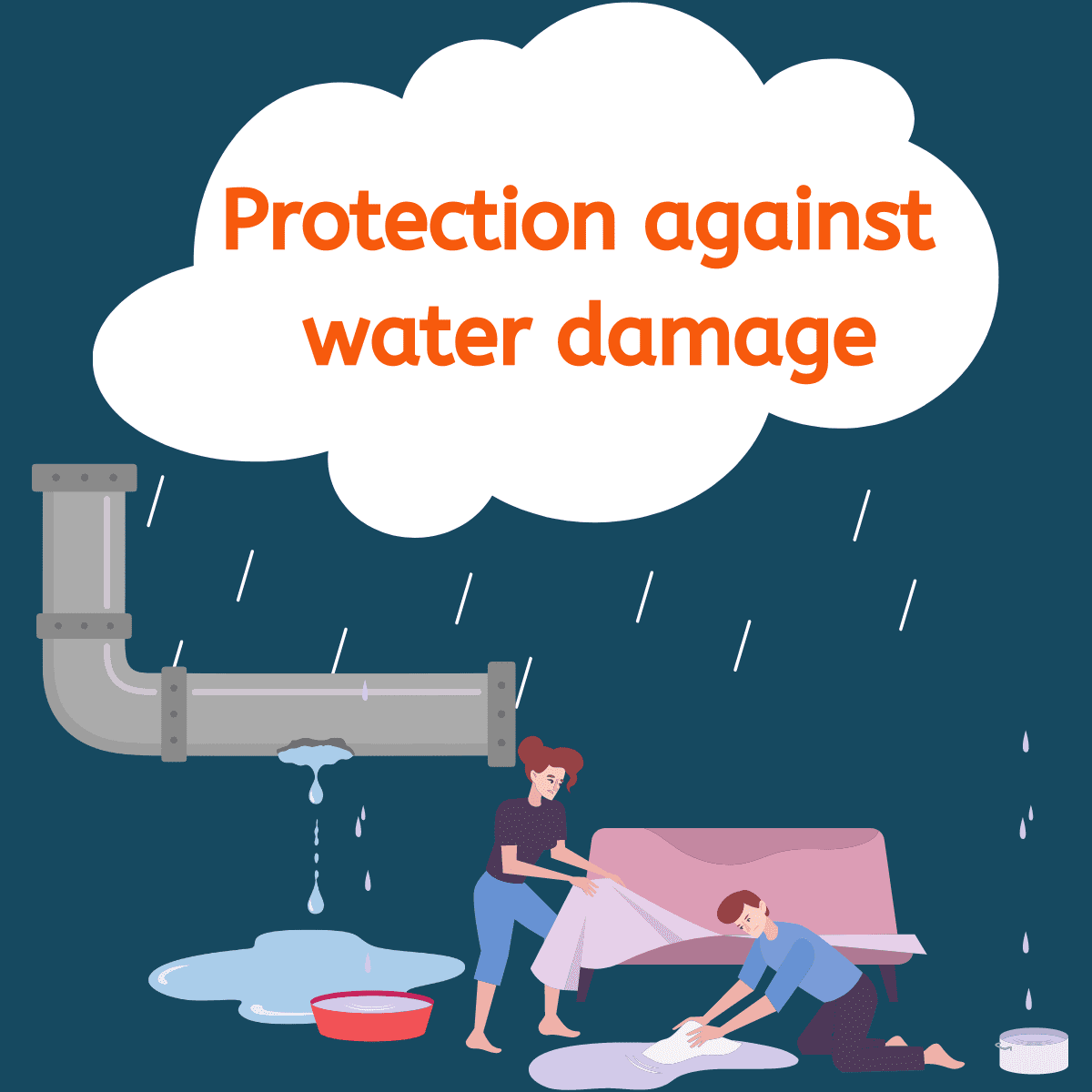Protection against water damage

How to protect your place of work from water damage
This blog was developed from NIG to give you tips on how to stop water from escaping on your property and how to prevent it from happening. Use this blog to inform your senior members of staff of signs to watch out for to prevent the escape of water.
___________
Escape of water claims have risen over the past 15 years and more than half of business interruption claims are due to water leaks or bursts.
Water leaks, whether they are the result of broken or obstructed pipes, plumbing problems, or both, can seriously harm buildings and give landlords a lot of trouble.
According to data from the Association of British Insurers, insurers pay out a staggering £930 million in water-related claims each year, and while other commercial property claims have decreased recently, escape of water claims have been continuously increasing over the past 15 years (ABI).
Common reasons for water escape claims
Water pipes that have frozen – Recent years’ harsh winters have seen a rise in problems brought on by frozen pipes, with the ABI identifying 2018 as the UK’s worst year for broken pipes ever.
Blocked drain pipes: Buildup inside pipes can increase pressure and harm seals, enabling water to leak.
DIY mistakes: Due to a lack of plumbers and increased costs, many home owners have tried their hand at DIY projects like installing showers and washing machines.
problems brought by by water escaping
The smallest of ruptures may release huge amounts of water, and even seemingly little leaks can pose serious issues for property owners. A claim for a burst pipe typically costs around £9,000, according to the ABI.
Water leakage can have a variety of negative effects, including the following, in addition to harm to the building’s floors, walls, ceilings, and contents:
Subsidence damage if water compromises a building’s foundations
Business interruption and income loss while repairs are being made
The price of alternative housing and/or premises
Tips to help stop water from escaping
Find out how to spot frozen pipes.
Ignoring frozen pipes until it’s too late is one of the most frequent mistakes. Pipes need to be checked for frost if the water supply has reduced to a trickle, if water is coming out ice-cold, or if your faucets are emitting a weird odour (which signals a blockage created by frozen water). Water can start flowing normally again by being heated with a space heater or hairdryer in any frozen places.
Insulate exposed pipes.
Insulating pipes with pipe wrap or insulating tape is one of the greatest techniques to stop pipes from bursting. The weaker components of the pipes, such as the joints, should receive the most attention. Protecting exposed pipes is especially important for those that run along external walls, in the basement, and on the roof.
Let your heater “lag”
Businesses frequently turn off their heaters over the weekends and nights. However, if there is a sudden cold spell, pipes may freeze and explode when no one is there. Setting the heating to turn on at regular intervals, or “lagging,” will keep water moving through the pipes and prevent them from freezing.
Turn off the water supply in vacant buildings
It’s best to turn off the water supply while no one is home, whether a property will be empty for a week or several years. In this manner, the harm brought on by a pipe burst will be minimal.
If your pipes do rupture, immediately shut off the stopcock.
You can considerably lessen the damage resulting from flooding by cutting off the water supply to a burst pipe as soon as possible. Large buildings with intricate pipe networks may require landlords to invest in automatic leak detection technology that will immediately cut off the water supply in the event of a leak.
Prevent blocked waste pipes by taking action.
It is important to remind tenants that only water should be put down exterior drains and that only toilet paper should be flushed down the toilet. For all sinks, bathtubs, and showers, landlords can supply drain guards to stop food scraps and hair from falling into the plughole.
Make sure the piping and seals are of high quality.
Cutting corners in the plumbing industry is not advised. When fixing washing machines or installing new showers, landlords should use high-quality pipes and seals and hire a licenced plumber.
For more information on water damage on construction sites, see this article by Risk Acumen on what we can do to raise awareness of free guidance.
___________
Talbot Jones Ltd is a family-run chartered insurance heritage specialist in the Third Sector and Professional risks. Get in touch for free insurance advice, review or quotation.






